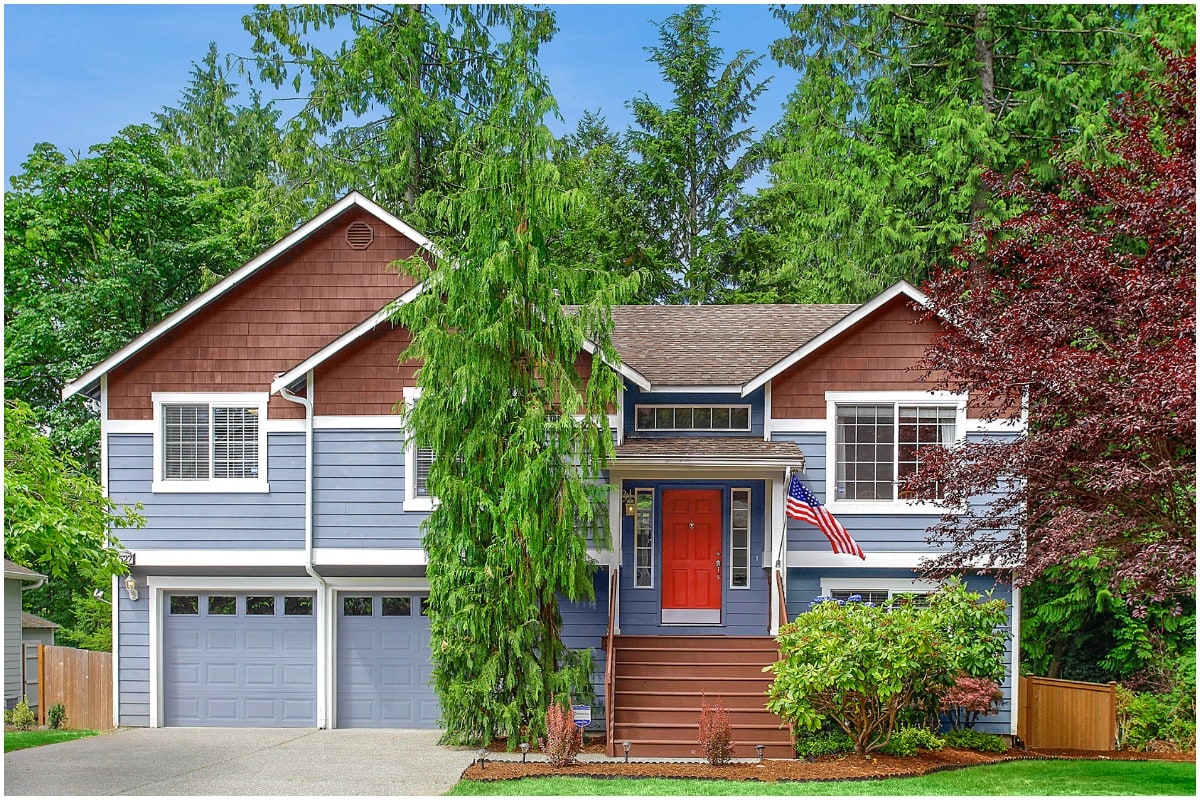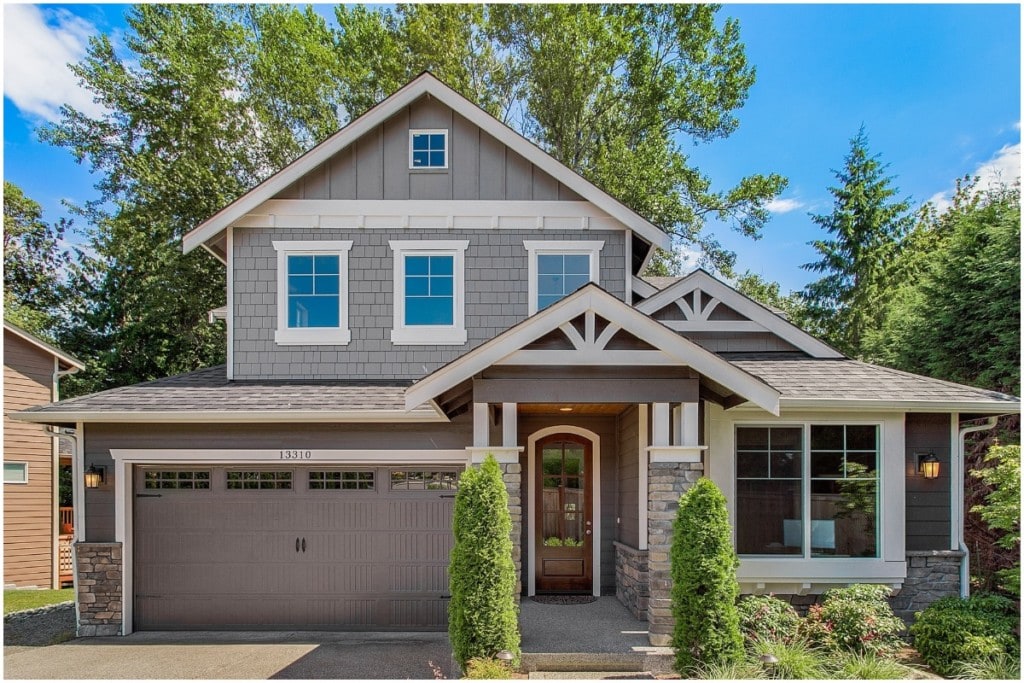7 Home Buying Tips Every Veteran Needs to Know

For most people, buying a home is an exciting and emotional milestone. This can be especially true for veterans, who have likely spent years traveling between bases, and are looking for a place to finally call their own.
While the home buying process can be overwhelming, there are many resources available to make it simpler and more affordable for those who have served in the military. If you’re a veteran or active military personnel and you’re starting the quest for your new home, be sure to first consider these seven important home buying tips.
1. Understand the VA home loan
Most veterans are eligible for a VA home loan, which is provided by private lenders but backed by the U.S. Department of Veterans Affairs. A mortgage that requires $0 down, VA loans are a competitive and affordable way for veterans laying down roots to save. VA loans are perfect for veteran first-time homebuyers who do not have enough money for a down payment. Credit requirements are looser than traditional mortgages as well – a bonus for those who don’t have a long credit history. Further, VA loans don’t require private mortgage insurance (PMI) – a typical form of insurance for those who can’t put down 20 percent.
Funding fees are required with VA loans, which are not generally included in standard mortgages. However, the fees serve a good purpose as they go directly to the Department of Veterans Affairs to pay the costs of the program. In 2020, the funding fee is 2.3 percent of the total loan amount for the first use and 3.6 percent for additional uses. You can pay for this fee upfront or roll it into the loan. Before moving forward, be sure to review the VA loan requirements and ensure you’re eligible.
Understanding the basics of a VA home loan and how to properly use your military benefits are just small pieces of the mortgage process. To better understand how to maximize the use of your benefits, speak with a qualified mortgage lender to discuss what works best for you.

2. Explore all of your lending options
VA loans are great for those who are looking for a loan with no down payment and limited closing costs. However, there may be instances where other loan options are a better fit. Additional lending options include:
- FHA loans: Like VA loans, an FHA loan allows veterans to buy a home without the need for great credit and a large down payment. FHA loans are especially geared toward first-time homebuyers. While FHA loans have some cost-saving advantages, they usually can’t match those of a VA loan. However, if your credit score is in the 500s, you likely won’t qualify for a VA loan. In this case, an FHA loan is a great option.
- USDA loans: If you’re looking to buy a home in a non-urban area of the U.S., you may qualify for a zero-down loan backed by the U.S. Department of Agriculture. USDA home loans allow buyers to secure these mortgages as long as the property is within a qualified area. If you qualify as low- to moderate-income and can’t qualify for VA loan, consider a USDA loan instead.
- Conventional loans: These are the most common type of home mortgages for the general public. Unlike an FHA or a VA loan, conventional loans are not backed by the government. Credit requirements and financial standards for conventional loans tend to be more limited. However, those with excellent credit and stable assets can often get great rates and terms.
- Native American Direct Loans: This program is specifically for qualifying Native service members to use VA loan benefits for housing on federal trust lands. Veterans who are not Native American, but who have a Native American non-military spouse, may also be eligible for a loan under this program. Unlike the traditional VA loan, NADLs come straight from the government and don’t involve a third-party lender.
3. Focus on credit
VA loans have looser credit requirements than traditional mortgages, but this doesn’t mean veterans can ignore one of the most important home buying tips. Homebuyers need a credit history of some sort with more positive than negative indicators. Check your credit score regularly to ensure your current actions are building and not hurting your credit. You can get one free copy of your credit report every 12 months at AnnualCreditReport.com.
4. Look into other financial resources
There are a number of other home buying grants and programs offering financial resources to veterans, including:
- Dream Makers Program: This program provides qualified veterans and active duty service members grants for down payments and closing costs. The Dream Makers grant is based on a 2-to-1 match of what the homebuyer contributes towards the purchase.
- Adapted Housing Grants: These grants can help veterans with permanent and total service-connected disabilities purchase or build an adapted home. They can also be used to modify an existing home to accommodate a disability.
- State and Local Programs: There are also numerous state and local programs that provide housing grants for veterans in their area. Once you know the location of your new home, you can also check the VA’s National Resource Directory for more location-specific housing assistance.
5. Maintain your employment
Stability, employment, and income show the lender how much house you can afford and are important indicators for qualifying for any mortgage, including a VA loan. So, if possible, keep your employment consistent throughout the home buying process. Quitting your stable job, even if you have another one lined up, raises red flags for lenders of all kinds. This implies that your income may not be on par with the terms upon which your loan offer was made.
Even if you signed the paperwork, your loan isn’t guaranteed until the closing process is complete. So if you change jobs during any part of the process, your loan eligibility could be withdrawn. This also goes for big purchases. You should, of course, still make necessary purchases, but anything extraneous and large that can wait, should.
6. Don’t forget about closing costs
Limited closing costs is one of the great benefits of a VA loan. While the loan has closing costs, the government doesn’t allow veterans to pay many of them. These non-allowable costs can include escrow or settlement fees, processing, underwriting, and document fees. The lender may charge a one percent origination fee in lieu of these closing costs, meaning one percent of the loan amount is due instead.
So what fees will need to be paid? Veterans will pay for a credit report, appraisal, title insurance, recording fees, and a survey. Over the life of the loan, there may be other recurring charges that veterans will be responsible for, such as hazard insurance. Keep in mind that the types of fees and their amounts vary greatly by state. Your lender should provide you with a loan estimate, which outlines the exact fees you’ll need to pay at closing. You can also negotiate these costs, as the seller could pay for some of them.
7. Use the right real estate agent
If you plan to take advantage of veteran home buying programs, choose a realtor who is experienced with veterans. The differences between VA loans and other mortgage options can be vast, so working with a professional who fully understands the buying process is one of the top home buying tips for veterans.
Consider searching through online directories to find veteran-friendly agents or speaking with other veterans who have made successful purchases in your housing market. If you feel that your agent can’t properly guide you through the process, don’t be afraid to make a switch at any time.
Buying a house as a veteran can be a major decision, especially for those newly out of the service. However, the right information and preparation can make the process significantly easier. From reviewing all of your lending options to understanding closing costs, these seven veteran home buying tips can help make the process of homeownership as exciting and seamless as possible.
The post 7 Home Buying Tips Every Veteran Needs to Know appeared first on Redfin | Real Estate Tips for Home Buying, Selling & More.


